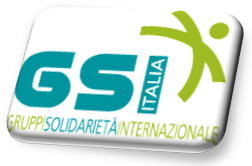 Event date: 1-7 June 2012
Event date: 1-7 June 2012
Region: Europe
Media Diversity Institute (MDI) in partnership with Gruppi Solidarieta Internazionale (GSI Italia) is organising a 7 day training course for 30 European youth workers, taking place from 1 to 7 June 2012 in Spoleto, Italy.

Viviane Reding, Vice-President of the European Commission and EU Commissioner for Justice, Fundamental Rights and Citizenship, declared on 25 August 2010: “During the past few weeks, the situation of the Roma – the largest ethnic minority in the European Union – has attracted the attention of policy-makers at both national and EU levels. I believe that the Roma are an important part of the population of the European Union, and that it is of paramount importance that they are well integrated into the societies of our Member States. The integration of 10 million Roma people is a priority for all Member States, European Institutions and for all actors operating at national level.”
With this view in mind, the project “Let the Roma Youth Be Heard”, submitted within the Life Learning Program, is a 12-month long endeavour which aims to promote young peoples’ positive engagement with and awareness of diversity across Europe. Participating countries are: Czech Republic, Greece, Italy, Poland, Turkey and the United Kingdom.
The project consists of a training course on journalism which will take place between 1st and 7th of June 2012 in Spoleto. The training workshops will be attended by 30 European youth participants from across the six partner countries.
The purpose of the workshops is to consolidate participants’ competencies in conducting technical journalism training, writing editorial features, and setting up and managing communication tools available on the web- with the view of publishing and post an online bimonthly newspaper, entitled “Let the Roma Youth Be Heard”.
The electronic magazine can be found at Ro Magazine and its content will focus on the Roma people’s conditions. It will be disseminated through several online community tools such as websites, blogs and social networks. At the end of the project, a report entitled “What Roma Can Do”, presenting results and conclusions, will be published in 8,000 copies and disseminated through online mass media.
For further information, click here.